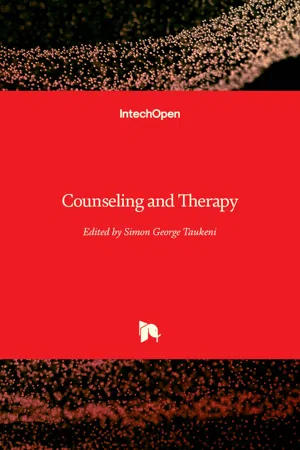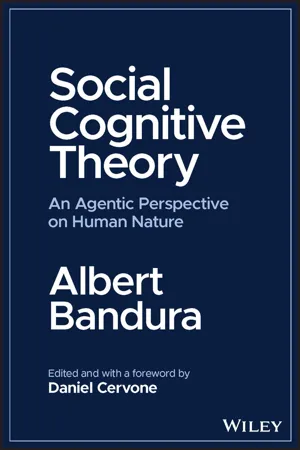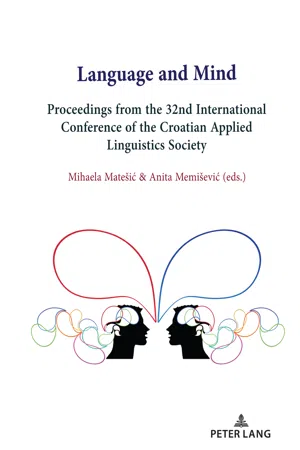Business
Self-Efficacy Theory
Self-efficacy theory, developed by psychologist Albert Bandura, refers to an individual's belief in their ability to accomplish specific tasks and achieve goals. In a business context, it influences employee motivation, performance, and resilience. Employees with high self-efficacy are more likely to set challenging goals, persevere in the face of obstacles, and ultimately contribute to the success of the organization.
Written by Perlego with AI-assistance
Related key terms
1 of 5
10 Key excerpts on "Self-Efficacy Theory"
- Mark R. Leary, June Price Tangney, Mark R. Leary, June Price Tangney(Authors)
- 2011(Publication Date)
- The Guilford Press(Publisher)
198 “Self” and “identity” are concerned largely with the question “Who am I?” Often peo- ple try to answer the question “Who am I?” by asking “What am I good at?” and “What can I accomplish?” The study of self-efficacy is concerned with understanding this im- portant aspect of self and identity—people’s beliefs about their personal capabilities, and how these beliefs influence what they try to accomplish, how they try to accomplish it, and how they react to successes and setbacks along the way. Since the publication of Bandura’s article “Self-Efficacy: Toward a Unifying Theory of Behavior Change” in 1977, the term self- efficacy has become ubiquitous in psycholo- gy and related fields. Hundreds of articles on every imaginable aspect of self-efficacy have appeared in journals devoted to psychology, sociology, kinesiology, public health, medi- cine, nursing, and other fields. This research can be only summarized here and cannot be discussed in detail. Thus, the goal of this chapter is breadth of coverage, not depth. In the first section we discuss the defini- tion and measurement of self-efficacy. In the second section we discuss how self-efficacy beliefs develop, and in the third, the impor- tance of self-efficacy and the application of Self-Efficacy Theory to a number of areas of human adaptation and adjustment. Self-efficacy is best understood in the con- text of social cognitive theory—an approach to understanding human cognition, action, motivation, and emotion that assumes peo- ple actively shape their environments rath- er than simply reacting to them (Bandura, 1986, 1997, 2001; Barone, Maddux, & Sny- der, 1997; Kross, Mischel, & Shoda, 2010; Mischel, 1973; Shadel, 2010). Social cogni- tive theory has at least four basic premises. First, people have powerful cognitive or symbolizing capabilities that allow them to create internal models of experience. Be- cause of this capacity, people can observe and evaluate their own thoughts, behavior, and emotions.- eBook - ePub
The Routledge International Encyclopedia of Sport and Exercise Psychology
Volume 1: Theoretical and Methodological Concepts
- Dieter Hackfort, Robert Schinke, Dieter Hackfort, Robert Schinke, Dieter Hackfort, Robert J. Schinke(Authors)
- 2020(Publication Date)
- Routledge(Publisher)
42Self-efficacy
Timothy J. H. Budden, Ben Jackson, and James A. DimmockIntroduction
Grounded in social cognitive theory (SCT; Bandura, 1986), self-efficacy refers to one’s ‘beliefs in one’s capability to organize and execute the courses of action required to produce given attainments’ (Bandura, 1997, p. 3). The nature, causes, and consequences of self-efficacy perceptions have been widely studied within sport and exercise psychology; as such, the literature is replete with comprehensive reviews of both the construct and the broader theoretical framework within which it exists (Feltz, Short, & Sullivan, 2008). Accordingly, in this chapter, rather than providing another exhaustive overview of sport- and exercise-based self-efficacy research, we seek to (a) broadly consider the prevalence and significance of ‘agentic’ perceptions—such as self-efficacy—within motivation and behaviour change theories, (b) offer a relatively brief theoretical overview of the construct, and (c) highlight an important, broad issue that requires further research attention in this area.Theoretical Overview
Defined broadly, perceptions of competence or agency (e.g., self-efficacy, perceived competence, perceived behavioural control) appear as important drivers of goal-directed action in several motivational and behavioural frameworks. In self-determination theory (Ryan & Deci, 2000), for example, it is outlined that high-quality (i.e., autonomous) motivation is supported, in part, by an individual’s perceptions of competence (i.e., a sense of capability with regards to a focal activity). Individuals who consider themselves to be highly capable in a given athletic endeavour, therefore, are theorized to be more likely to be autonomously motivated for that endeavour. Within the theory of planned behaviour (Ajzen, 1991), meanwhile, perceived behavioural control is posited as a predictor of both intentions and behavioural engagement. Specifically, individuals who believe they possess a high degree of control over a behaviour are said to be more likely to intend to (and actually) engage in that behaviour. Similarly, in expectancy-value theoretical models (see Wigfield & Eccles, 2000), expectancies of success and ability beliefs predict achievement choices and, in turn, performance, effort, and persistence. Finally, within the health promotion literature, self-efficacy beliefs are proposed to contribute to behaviour change, planning, and/or maintenance in the transtheoretical model (Prochaska & Velicer, 1997), the health belief model (Rosenstock, Strecher, & Becker, 1988), the health action process approach framework (Schwarzer & Luszczynska, 2008), and the extended parallel process model (Witte, 1992). As is evident from the array of frameworks that incorporate self-efficacy (or related) perceptions as drivers of motivation and/or behaviour, the salience of individuals’ competence beliefs is well recognized. It could be argued, however, that the most detailed account of these agentic perceptions is provided within Bandura’s (1977, 1997) Self-Efficacy Theory. In the following section, we provide a brief overview of the theoretical foundations of—and empirical support associated with—Self-Efficacy Theory. - eBook - PDF
- Simon George Taukeni(Author)
- 2020(Publication Date)
- IntechOpen(Publisher)
Similarly, Nasiriyan et al. [7] refer to self-efficacy as student’s beliefs in their capability to learn new skills and tasks, frequently in a precise academic area. Consequently, apparent self-efficacy is a concept in which people believe that they can produce given attainments [8]. Explaining self-efficacy in the theoretical framework of social cognitive theory by [1, 9, 10] detailed that people’s achievement hinges on the interactions between an individual’s behaviours, personal issues and ecological circumstances. Self-efficacy can be perceived as negatively or positively influencing students’ achievement. Therefore, self-efficacy is the judgement one places on their capability, and not their anticipated performance or achievement. Self-efficacy is comparable to terms such as self-concept, self-esteem and self-appraisal. Self-concept is the cognitive or intellectual facet of self usually referring to the entirety of a complex, organised, and dynamic system of learned beliefs, atti-tudes and opinions that each person embraces as the truth about his or her personal existence [11]. Just as self-efficacy, the concept of self-concept is believing in one’s ability to achieve in set assignments. Self-esteem is the affective emotional aspect of self and mostly referring to how one feels about or how one values themselves. It is how one views their self-worth. A student may feel they are worthy of performing or may feel they are not capable of achievement. Self-appraisal is self-assessment that is a descriptive and evaluative decision that the student makes concerning his or her own work and academic aptitudes. Academic self-efficacy is the self-assurance revealed by the persons in their expertise to complete academic tasks at the desired outcome [12]. The scholars above advocate that when students have higher academic self-efficacy, their effort shows greater determination in doing academic tasks. - eBook - ePub
Motivation and Self-Regulated Learning
Theory, Research, and Applications
- Dale H. Schunk, Barry J. Zimmerman, Dale H. Schunk, Barry J. Zimmerman(Authors)
- 2012(Publication Date)
- Routledge(Publisher)
self-efficacy beliefs provide the foundation for human motivation, well-being, and personal accomplishment. No matter what other factors may serve as motivators, Bandura (2004) contended, “they are rooted in the core belief that one has the power to effect changes by one’s actions” (p. 622). This is because unless people believe that their actions can produce the outcomes they desire, they have little incentive to act or to persevere in the face of difficulties.Self-efficacy beliefs touch virtually every aspect of people’s lives—whether they think productively or self-debilitatingly; how well they motivate themselves and persevere in the face of adversities; their vulnerability to stress and depression; and the life choices they make. People with a strong sense of efficacy approach difficult tasks as challenges to be mastered rather than as threats to be avoided. They have greater intrinsic interest and deep engrossment in activities, and they set themselves challenging goals and maintain strong commitment to them. High self-efficacy also helps create feelings of serenity in approaching difficult tasks and activities. As a consequence, self-efficacy beliefs powerfully influence the level of accomplishment that one ultimately achieves.It is at this juncture important to extend the caution that self-efficacy should not be confused with self-concept, which is a broader evaluation of one’s self, often accompanied by the judgments of worth or esteem that typically chaperone such self-views. When individuals tap into these two self-beliefs, they ask themselves quite different types of questions. Self-efficacy beliefs refer to matters related to one’s capability and revolve around questions of “can” (Can I drive a car? Can I solve this problem?), whereas self-concept beliefs refer to matters related to being - eBook - ePub
Social Cognitive Theory
An Agentic Perspective on Human Nature
- Albert Bandura, Daniel Cervone(Authors)
- 2023(Publication Date)
- Wiley(Publisher)
1986 ). To equate for individual differences in physical performance, participants rated their self‐efficacy for 14 levels of performance attainment ranging from a 50% decline to and 80% increase in effortful performance compared to their baseline performance level. Their subsequent percent change in effortful performance was also measured relative to their baseline performance level. The higher the participants perceived self‐efficacy and the greater their discontent with just matching their past performance the higher their performance output.Social cognitive theory of career choice and development has sponsored wide‐ranging programs of research with special focus on the role played by beliefs of personal efficacy in occupational choice and preparation (Lent, Brown, & Hackett, 1994 : Betz & Hackett, 1997 ). These lines of research help to clarify the impact of self‐efficacy beliefs on decisional behavior. The findings of this substantial body of research show that the higher the perceived self‐efficacy to fulfill educational requirements and occupational roles the wider the career options people seriously consider pursuing, the greater the interest they have in them, the better they prepare themselves educationally for different occupational careers, and the greater their staying power in challenging career pursuits. Efficacy beliefs predict occupational choices and level of mastery of educational requirements for those careers, and persistence in technical/scientific pursuits when variations in actual ability, prior level of academic achievement, scholastic aptitude and vocational interests are controlled (Lent, Brown, & Larkin, 1989 ; Lent, Brown, & Larkin, 1984 , 1986 , 1987 ; Lent, Lopez, & Bieschke, 1993 ).Self‐development during formative years forecloses some types of occupational options and makes others realizable. A multifaceted longitudinal project examined by the path analytic method shows how sociostructural determinants operating in concert with different facets of perceived self‐efficacy at the beginning of junior high school predict the types of occupational pursuits students are seriously considering toward the end of junior high (Bandura, Barbaranelli, Caprara, Pastorelli, 2001 - eBook - ePub
Sustainable Business Practices for Rural Development
The Role of Intellectual Capital
- Hardeep Chahal, Vijay Pereira, Jeevan Jyoti, Hardeep Chahal, Vijay Pereira, Jeevan Jyoti(Authors)
- 2020(Publication Date)
- Palgrave Macmillan(Publisher)
In other words, if one regulates himself/herself then they can manage, organise and control the business successfully. The person with high self-regulation becomes a successful entrepreneur. This phenomenon mediates between self-efficacy and entrepreneurial intentions (Pihie and Bagheri 2013). Individuals who are confident about their abilities and skills are able to control their behaviour more, which in turn motivates them to engage themselves in entrepreneurial activities or set up their own ventures. In order to start and run a business lucratively, there is need for individual’s adaptability to the situation, which can be possible only with the help of regulation. Self-efficacious individuals are able to manage difficult situations and learn from their mistakes, which in turn helps them to undertake entrepreneurship. They set their personal standards and follow them strictly, which in turn enhances their entrepreneurial intentions. Self-efficacious individuals have the capability to successfully complete the specific task (Paulsen and Gentry 1995 ; Schunk 1996 ; Onoda 2014), which in turn helps individual to regulate themselves thereby improving their entrepreneurial intentions. Self-efficacy fuels motivation (i.e., a drive to initiate their learning) and volition (i.e., willpower to help individuals to maintain their learning when they are faced with distracting factors), enabling individuals to persist when faced with difficulties (Onoda 2014) which further leads to higher entrepreneurial intentions - Daniel J. Svyantek, Kevin T. Mahoney(Authors)
- 2013(Publication Date)
- Information Age Publishing(Publisher)
More to the point, work settings are a place where overconfidence is the more likely problem (Dunning et al., 2004). Even if we concede that self-efficacy is a key motivating mediating mechanism because one must be pursuing a goal for any goal-directed behavior to occur, we suspect this is not a major issue in work settings. Specifically, we know that expectancies (or self-efficacy) interact with anticipated value (i.e., valence) to determine choice. If either construct is too low, the person does not put forth effort. Yet, in work settings individuals do generally put forth some level of effort. Otherwise they would not last long in the job. Once such effort is put forth, they can see the fruits of their labor. To be sure, what they see is often bias, but it is biased in the direction of seeing more than others. Presumably, this biased observation is what leads to overestimations of capacity. Underestimates of capacity seem only the case with inexperience on complex tasks (Moore & Cain, 2007). This may be relevant when some new technology or procedure is introduced, but once again, training how one should use the technol-ogy or do the procedure will generally be an effective intervention. Self-efficacy or expectancy will rise along the way (Heggestad & Kanfer, 2007; Mitchell et al., 1994). CONCLUSION The treatise of our chapter is not that self-efficacy is useless, like self-esteem appears to be, or that increasing self-efficacy adversely affects outcomes, Management Scholars 97 like Bandura claims of his detractors (Bandura, 2012). Rather, we argue the role of self-efficacy (or expectancy) in motivation is complex. It appears to play a supporting role in the decisions of resource allocation when direct information about progress is unavailable, but that role leads to both positive and negative effects on resource allocation (Vancouver et al, 2008).- eBook - ePub
- Gene Thompson(Author)
- 2020(Publication Date)
- Multilingual Matters(Publisher)
Furthermore, both may also be influenced by context (e.g. working at a school with motivated students versus with students who have no desire or need to speak English). Thus, in the assessment of their efficacy beliefs, individuals are likely to weigh up the difficulty of carrying out the task (e.g. is it possible or valued?) and the expected outcome (i.e. will it be perceived to influence student learning and development?), alongside the skills they perceive available to use in achieving the task (see Figure 2.1). Figure 2.1 Conceptual framework of self-efficacy assessment Accordingly, self-efficacy beliefs are argued to influence agency, motivation and self-regulation, and to mediate states of anxiety. Agency is concerned with individuals’ capacity to control and coordinate their actions, beliefs and emotions to reach goals. Therefore, agency is the driver of intentional acts (as opposed to outcomes, which may be unintended). Bandura (2001: 10) claimed that ‘efficacy beliefs are the foundation of human agency’ and summarised their importance, stating ‘whatever other factors may operate as guides and motivators, they are rooted in the core belief that one has the power to produce effects by one’s actions’. As self-efficacy beliefs are perceptions of capability, these beliefs influence choice and effort towards goals, that is, individuals ‘regulate their level and distribution of effort in accordance with the effects they expect their actions to have’ (Bandura, 1986: 129). Efficacy beliefs have also been consistently shown to have a negative relationship with anxiety (Mills et al., 2006; Pajares & Kranzler, 1995; Swars et al., 2006). Such a relationship is not surprising, as people who perceive a negative emotional and threatening response towards a task (e.g. anxiety towards teaching via English) may also believe themselves less capable of bringing about actions to complete it - eBook - PDF
Language and Mind
Proceedings from the 32nd International Conference of the Croatian Applied Linguistics Society
- Mihaela Matesic, Anita Memiševic(Authors)
- 2020(Publication Date)
- Peter Lang Group(Publisher)
Moreover, they become cog- nizant of the numerous factors at work in teaching, one of which is the impor- tance of their beliefs. In other words, they start taking their self-image as future teachers into account, alongside appraising their capabilities in the classroom. Preservice teachers’ self-beliefs develop while still in training; in other words, they can be strengthened, modified, or discarded in contact with real-life teaching. The fluidity of self-efficacy beliefs and their impact on future teachers makes this topic particularly interesting. This chapter will attempt to investigate teacher self-efficacy, more specifically, preservice teachers’ self-efficacy beliefs. 2 Self-efficacy According to Bandura (1997), perceived self-efficacy can be defined as beliefs an individual has about their abilities to perform actions needed to attain cer- tain goals. Self-efficacy puts a focus on self-perception, or what one believes one can do, rather than actual competence, or what one can do (Tschannen-Moran, Woolfolk, Hoy, 1998). The question pertaining to self-efficacy includes: “Do I have the ability necessary to carry out actions required to attain a certain task at a desired level?” Under or overestimation of one’s abilities can lead to different outcomes in terms of future actions and effort one intends to take to achieve one’s objectives. Self-efficacy differs from self-concept or self-esteem as it is connected to a specific task. Self-efficacy beliefs influence people’s goals and behaviors. Furthermore, they affect how people perceive environmental obstacles and opportunities, as well as their choice of activities, the amount of effort expended, and how long individuals will persist when confronted with obstacles (Bandura, 1997, Schunk, 1995). Accordingly, it may be presumed that individuals with stronger self-efficacy beliefs will set higher goals, experience less apprehension, and persist longer when faced with a problem. - Herbert Marsh, Rhonda G. Craven, Dennis M. McInerney(Authors)
- 2017(Publication Date)
- Information Age Publishing(Publisher)
Santa Monica, CA.: Rand Corporation. Teacher Self-Efficacy 245 Ballet, K., Kelchtermans, G., & Loughran, J. (2006). Beyond intersification to-wards a scholarship of practice: analysing changes in teachers’ work lives. Teachers and Teaching: Theory and Practice , 12 , 209–229. Bandura, A. (undated). http://www.coe.ohio-state.edu/ahoy/Bandura%20Instr. pdf Bandura, A. (1977). Self-efficacy: Toward a unifying theory of behavioral change. Psychological Review , 84 , 191–215. Bandura, A. (1986). Social foundations of thought and action: A social cognitive theory . Englewood Cliffs, NJ: Prentice-Hall. Bandura, A. (1993). Perceived self-efficacy in cognitive development and func-tioning. Educational Psychologist , 28 , 117–148. Bandura, A. (1997). Self-efficacy: the exercise of control. New York: Freeman. Bandura, A. (2006a). Adolescent development from an agentic perspective. In F. Pajares & T. Urdan (Eds.), Self-efficacy beliefs of adolescents (pp.1–43). Green-wich, CT: Information Age. Bandura, A. (2006b). Guide for constructing self-efficacy scales. In F. Pajares & T. Urdan (Eds.), Self-efficacy beliefs of adolescents (pp.307–337). Greenwich, CT: Information Age. Bollen, K. A. (1989). A new incremental fit index for general structural models. Sociological Methods & Research , 17 , 303–316. Bong, M., & Skaalvik, E. M. (2003). Academic self-concept and self-efficacy: How different are they really? Educational Psychology Review , 15 , 1–40. Brouwers, A., & Tomic, W. (2000). A longitudinal study of teacher burnout and perceived self-efficacy in classroom management. Teaching and Teacher Edu-cation , 16 , 239–253. Burley, W. W., Hall, B. W., Villeme, M. G., & Brockmeier, L. L. (1991, April). A path analysis of the mediating role of efficacy in first-year teachers’ experiences, reactions, and plans. Paper presented at the annual meeting of the American Educational Research Association,Chicago. IL . Byrne, B. M. (2001). Structural equation modelling with AMOS.
Index pages curate the most relevant extracts from our library of academic textbooks. They’ve been created using an in-house natural language model (NLM), each adding context and meaning to key research topics.









